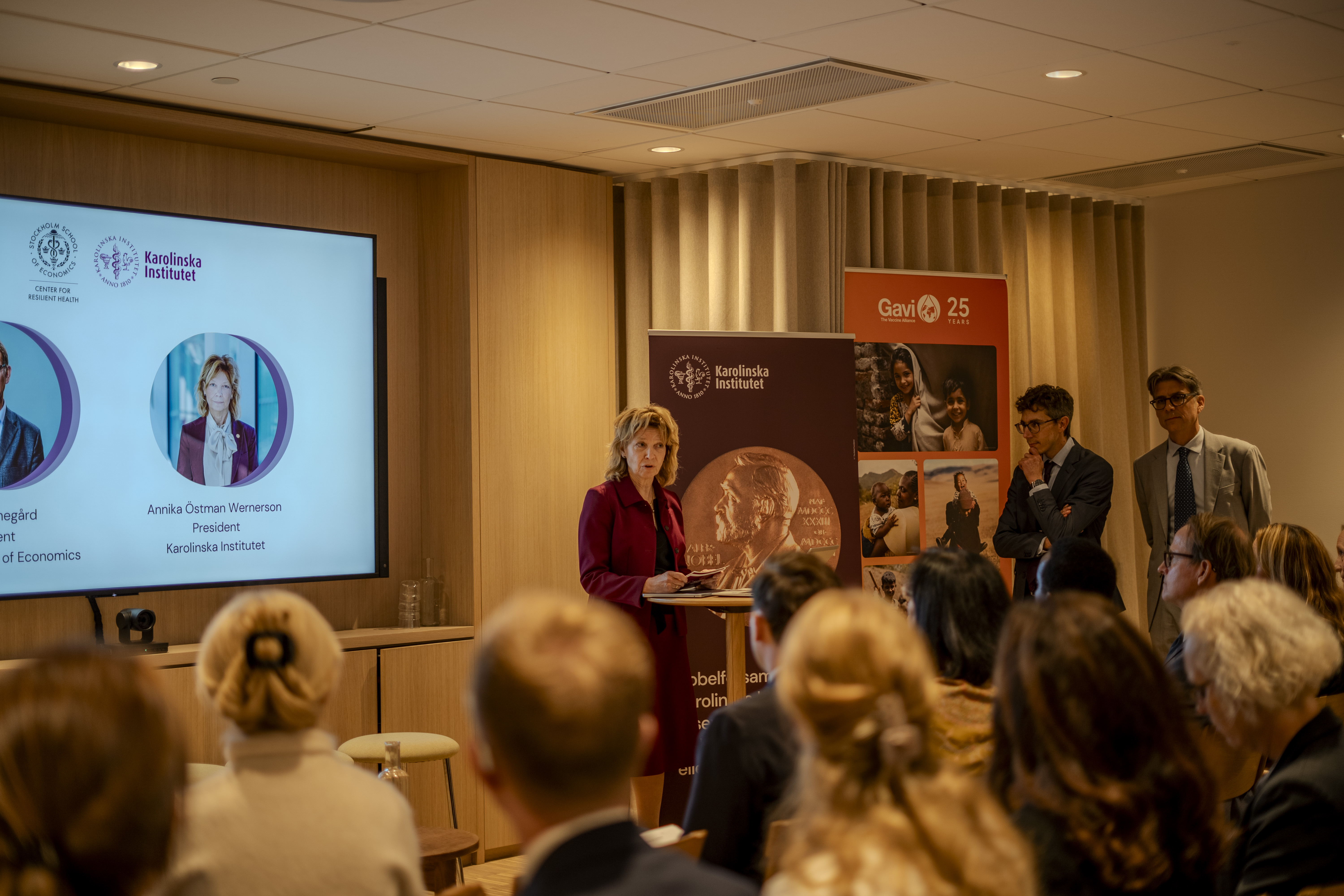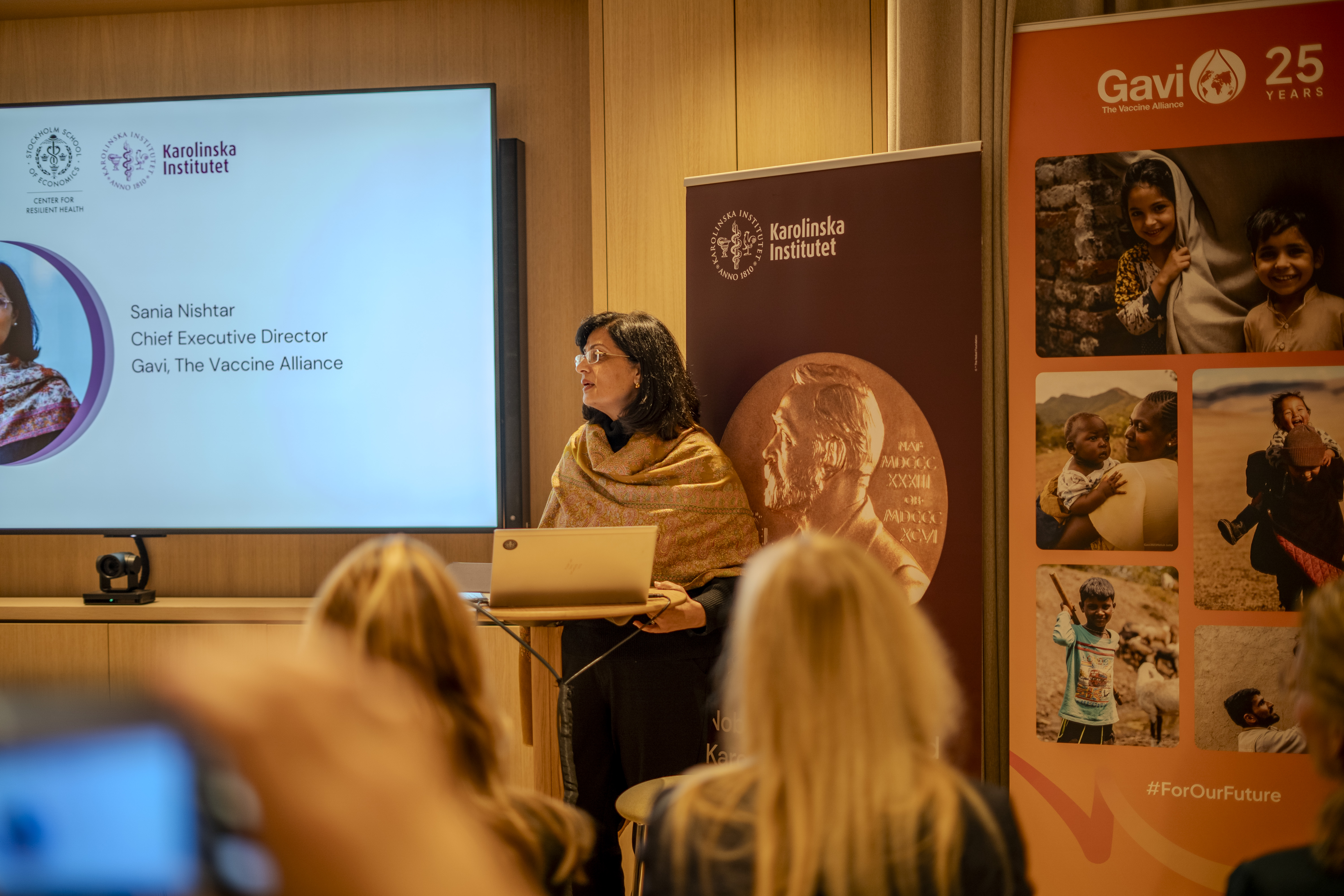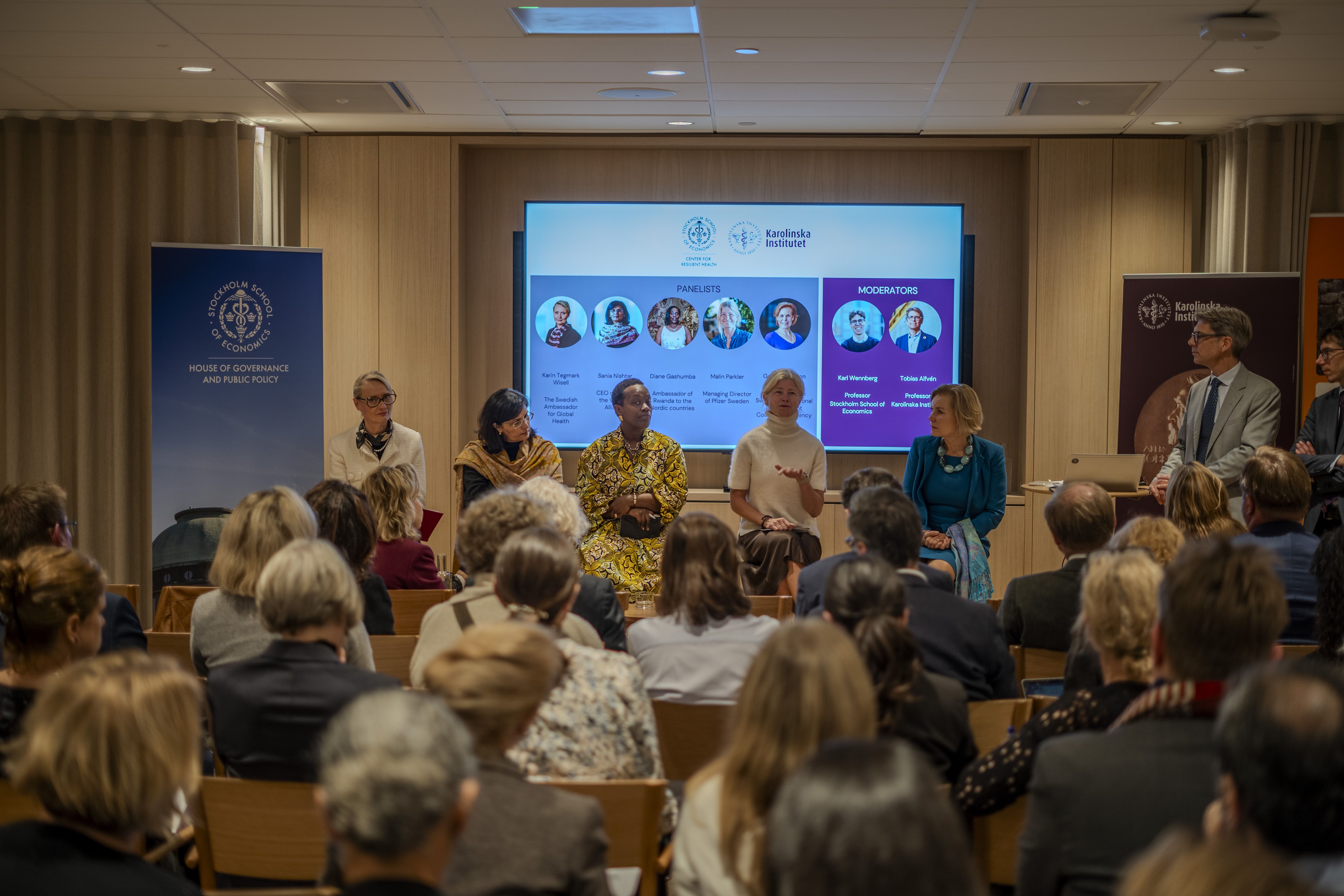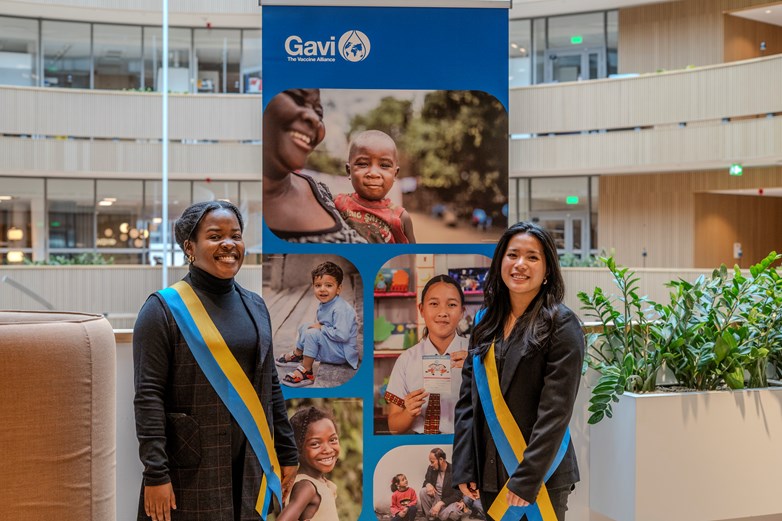Vaccines for all: Health, security, growth
Moderated by Professor Tobias Alfvén (Karolinska Institutet) and Professor Karl Wennberg (SSE), the conversation highlighted vaccines not only as tools for preventing disease but also as enablers of stability, trust, and prosperity.
A timely reminder of science and trust

Annika Östman Wernerson
In their opening remarks, Annika Östman Wernerson, President of Karolinska Institutet, and Lars Strannegård, President of SSE, underscored both the scientific achievements that have made vaccines possible and the challenges posed by misinformation in today's "post-truth" era. Vaccines, they stressed, are cornerstones of sustainable development and equity, but their politicisation highlights the urgent need for science-based dialogue.
Benjamin Dousa, Minister of International Trade and Developmental Cooperation, emphasized vaccines as one of the most cost-effective investments in global health and reaffirmed Sweden's commitment to international partnerships such as Gavi, UNICEF, WHO, and the Global Fund.
Global perspectives from Gavi and partners

Dr. Sania Nishtar
Keynote speaker Dr. Sania Nishtar, CEO of Gavi, the Vaccine Alliance, presented Gavi's achievements and challenges, from rolling out malaria and HPV vaccines to ensuring equitable access in fragile and conflict-affected settings. Since its founding, Gavi has helped vaccinate over 1.2 billion children and saved more than 20 million lives.
Additional research perspectives were shared by Professors Birgitta Henriques Normark and Anna Norrby Teglund (Karolinska Institutet) on next-generation pneumococcal and streptococcus A vaccines, and Professor Martina Björkman Nyqvist (SSE) on the barriers that prevent vaccines from reaching the "last mile".
Building partnerships for the future
A final panel discussion featured Karin Tegmark Wisell (Swedish Ambassador for Global Health), Sania Nishtar (Gavi), Malin Parkler (Pfizer Sweden), Diane Gashumba (Ambassador of Rwanda to the Nordic countries), and Gunilla Carlsson (Chair of Sida). Together, they discussed the roles of diplomacy, local ownership, and multisectoral collaboration in ensuring equitable vaccine access.
The panel highlighted that sustainable solutions must come from within countries, supported by respectful and accountable partnerships. As Gunilla Carlsson noted, health diplomacy offers a powerful platform for countries to stand together in times when multilateralism is being tested.

The panel discussion
Looking ahead
The event concluded with a sense of cautious optimism. While misinformation, financing challenges, and supply bottlenecks remain, there is strong momentum for collaboration across science, business, and diplomacy. As participants agreed, vaccines are more than medical tools - they are investments in global health security, economic stability, and trust between nations.




